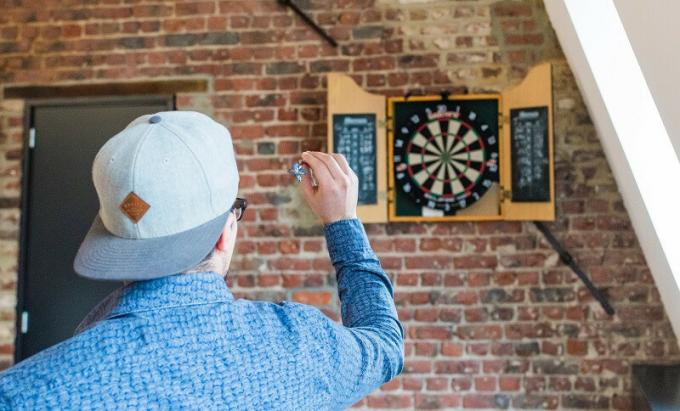How not to obsess over the fear of wasting time
Surely you have ever felt that you were wasting time when you carried out any activity that you considered "non-productive", coming to obsessively think that you should be making yourself more useful.
Many people can come to feel that their daily time is being wasted when in theory they dedicate it to doing something that fills them up or makes them happy, especially if they don't fits with the logic of the labor market and the constant search for profitability in monetary terms, on the one hand, or domestic chores and family responsibilities, on the other. other.
This obsession with not wasting time can become a true mental health problem, generating significant wear and tear in the medium and long term. Therefore, in this article we will focus on an idea as important as it is simple: the need to have time to lose it.
- Related article: "Time management: 13 tips to make the most of the hours of the day"
Key ideas to avoid obsessing over wasting time
If in your day to day you notice that stress, anguish or even the feeling of guilt take over you for the simple fact of having some minutes that you do not know what to allocate, or if you have assumed that your free time should always be invested in training, making friends or doing something that, in general, it gives you the feeling of accumulating progress... All of this is a sign that you have not established a healthy relationship with your time management. time.
Therefore, below I will show you a series of ideas and principles that you can apply to your day to day so as not to become obsessed with the fear of "wasting time".
1. Value time for ourselves to preserve mental health
Some people obsess over the idea that all the time spent daily being productive in one way or another, that is to say, that we must carry out activities that bring us a benefit, whatever the be. But we must overcome that notion of permanent productivity.
In this sense, beginning to conceive the time we dedicate to ourselves as valuable is the first step to avoid falling into the feeling of guilt in situations of this type. And for this, it is important not to lose sight of the fact that we are not robots, but living beings with needs that cannot be expressed in words or in numbers (not even those of our bank account).
mental health is key To have a good quality of life, and to maintain it, it is necessary to have free time and moments of leisure that do not have to translate into concrete or easily identifiable gains. It is a self-care process.
- You may be interested in: "Self-care through the practice of Mindfulness and self-compassion"
2. Knowing that disconnecting helps us rethink things
Medical science has been able to demonstrate that in moments of relaxation is when the best ideas and also solutions to complex problems in which we could be stuck or blocked. Stress leads us to behave through automatisms to respond to very short-term needs, while moments of calm allow us to mix ideas and mental images to give rise to creativity.
The time we dedicate to introspection or simply to disconnect from work dedicating ourselves to light hobbies and without great claims can help us to know ourselves better, to an intellectual process in which we begin to rethink things that we think we know about the "I", to break certain psychological inertia and to think beyond the classic schemes that we use habitually.
This allows us to draw new conclusions from other points of view that can be very useful to solve old problems or find new solutions to future issues.

In the same way, as indicated, in the moments that we dedicate to ourselves and in which we have enough relaxation and comfort, we can put into practice processes of deep personal self-knowledge that allows us to get to know each other better and make important decisions with greater criteria.
Self-knowledge does not happen if we do not have that time that takes us to ask ourselves the important questions, that time that allows us to be relaxed, quality time with ourselves.
- Related article: "How to deal with addiction to work? 6 effective strategies"
3. Encouraging moments of relaxation helps us to 'reset'
Apply relaxation routines to our day to day allows us to let go of worries that have kept us in a state of paralysis because we do not dare to face the true cause that provokes them. It is a way to "reset" our mind to smell with renewed strength to the challenges that life presents us, and through other paths of thought that have not been carved by anxiety.
Relaxation techniques help us find states of physical and emotional balance and allow us to take life with a better philosophy, valuing other good things that we have, instead of obsessing over the negative, such as the feeling of losing control time.
People who consider that they waste time when they do not dedicate it to work or any other paid activity usually present high levels of stress, anxiety or other psychological pathologies previous.
By putting effective relaxation techniques into practice, we will be able to reduce any type of psychological disturbance and enter into a state of well-being based on emotional balance.
Some of these techniques can be conscious breathing, progressive relaxation, yoga, meditation or Pilates.
- You may be interested in: "Rumination: the annoying vicious circle of thought"
4. Valuing what we have in life is essential to enjoy it
In order not to become intensely obsessed with wasting time when we spend quality time with our closest friends or relatives, it is important to value some little things that make us make sense of life. life. If we only pay attention to our goals, frustration will take over our routine.
For example, when we are with a family member, we should think about how lucky we are to have them and that we should make the most of the time we have with that person.
Valuing the importance of close interpersonal relationships or taking into account the luck that we have in life, we will be able to bring to the fore those activities that fulfill us without needing to be productive.


